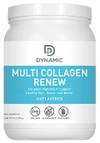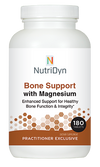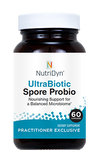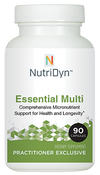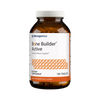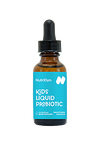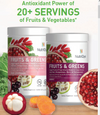Three in four Americans are trying to limit sugar intake to improve their health. But we still want a sweet treat — we’re consuming 235 percent more artificial sweeteners today than we did eight years ago, say researchers at the University of North Carolina.
This article covers:
* Try Stevia If You Have Diabetes:
* How to reduce High Cholesterol:
* Try Manuka Honey If You are prrone to colds.
* Can A simple diet change your life!
3 Natural Sweeteners to Try If You Have High Cholesterol, Diabetes, or Catch Colds?
- News
- 03 Sep, 2021
Nearly three in four Americans are trying to limit sugar intake to improve their health. But we still want a sweet treat — we’re consuming 235 percent moreartificial sweeteners today than we did eight years ago, say researchers at the University of North Carolina.
https://www.firstforwomen.com/posts/health/natural-sweeteners-to-try
The attached blog has been edited, Vivienne, Dr Direct Food Consultant, from this original site: https://www.firstforwomen.com/posts/health/natural-sweeteners-to-try "3 Natural Sweeteners to Try If You Have High Cholesterol, Diabetes, or Catch Colds Easily."
Before you consider making an changes to your family's diet, Dr. Direct4u.com strongly recommends consulting your Health Care Provider.
This article covers:
* Try Stevia If You Have Diabetes:
* How to reduce High Cholesterol:
* Try Manuka Honey If You are prrone to colds.
* Can A simple diet change your life!
But many sweeteners come with dangerous downsides like tiredness, headaches, brain fog and more. Indeed, a Yale University study finds that combining sucralose (Splenda) with carbohydrates — by having a diet soda with a sandwich or eating a food that combines the two — can raise blood glucose enough to cause diabetes. And studies show sweeteners like aspartame and saccharin light up the same pleasure center in the brain as sugar, keeping you dependent on them, says nutrition expert Fred Pescatore, MD. “Artificial sweeteners contain zero calories, but they still create sugar cravings,” he says. They can also cause tiredness, headaches, GI issues and weight gain.“I see patients who suffer from fatigue and symptoms due to sucralose sensitivity every week, ” says Mark Menolascino, MD, director of the Meno Clinic in Wilson, Wyoming. Millions of women use the low-cal sweetener, sold as Splenda, instead of sugar. “But it’s made by treating sugar molecules with chlorine which produces compounds that are foreign to the body,” he explains. The result: Women who are sensitive to it struggle with fatigue, headaches, body aches, digestive problems, and more. And research suggests that sucralose can have toxic effects on the liver and gut, sapping energy even more, says Ann Louise Gittleman, PhD. She estimates that 60 percent of women suffer but go undiagnosed.
Complicating matters: Sucralose, aspartame, and other artificial sweeteners are found in thousands of foods, such as sodas, baked goods, yogurts, and salad dressings, but the sweeteners also lurk in surprising places such as toothpastes, mouthwashes, lip balms and nutritional supplements. In fact, researchers at George Washington University ID’d the products as sources of sucralose exposure in study participants who avoided food that contained the sweetener entirely.
The easiest way to tell if you’re suffering from a sensitivity to artificial sweeteners is to eliminate them from your diet, says Dr. Menolascino, who advises checking food and beverage labels especially on products labeled “low calorie” or “sugar free.” Instead, reach for one of the natural sweeteners below that not only dodge downsides, but improve your health.
“If you are concerned about your blood-sugar levels, stevia is hands down the healthiest choice, especially if you have diabetes,” says Fred Pescatore, MD. “Stevia doesn’t cause any blood-sugar disturbances.” In fact, a study in the journal Appetite showed that diabetics who used stevia had lower blood-sugar levels than those who used artificial sweeteners. More good news: Stevia also acts as a prebiotic, which feeds the microbiome to further improve blood-sugar levels. “Stevia is 600 times sweeter than sugar, so use it sparingly,” says Dr. Pescatore. “One drop goes a long way.” A brand he likes: SweetLeaf Sweet Drops (Buy at Walmart, $16.32), which mixes well in drinks and recipes (just one teaspoon is the equivalent of 1/2 cup of sugar)
If You Have High Cholesterol:
The unique compound mogroside that gives the plant-based sweetener monk fruit its sweetness also lowers cholesterol by easing inflammation. “The body sends cholesterol to areas with inflammation to clean up the mess. This is good — unless you have body-wide inflammation, which causes the creation of too much cholesterol,” says Dr. Pescatore. “Lowering inflammation lowers cholesterol.” Plus, Researchers at Nashville’s Vanderbilt University report that monk fruit raises levels of “good” HDL cholesterol. Dr. Pescatore likes Lakanto Monkfruit Sweetener, available in supermarkets and online (Buy on Amazon, $6.57). “It is perfect in baked goods,” he says. “And it’s an easy one-to-one swap for sugar.”
If You Catch Every Cold: Manuka Honey
Consuming one teaspoon of manuka honey was enough to neutralize 85 percent of illness-causing bacteria and halt its spread entirely, according to research in Microbiology. How? Manuka honey contains a compound called methylglyoxal that stops germs from anchoring onto cells, preventing infection. “Quality is key,” says Julia Zumpano, RD, a dietitian at the Cleveland Clinic, who advises choosing honey with a unique manuka factor (UMF) of at least 10. “The higher the UMF, the more methylglyoxal it contains.” And because manuka honey doesn’t come cheap, she suggests using it sparingly. For example, mix one teaspoon into a cup of tea. One to try: Steens Raw Manuka Honey UMF 10+, available at grocery stores and online (Buy at SteensHoney.com, $16.38).
“A simple diet change turned my life around!”
“We’ll celebrate your birthday another day, I promise,” Nicole Beurkens told her husband as she canceled their plans. “My heart filled with guilt knowing it might never happen,” she recalls. Another day I’m letting my family down because I’m too tired, she thought. “I was eating a healthy diet and trying to stay active, when what started as me feeling unusually tired while playing with my kids progressed into exhaustion so profound I couldn’t stay awake during the day.
“After months of relentless fatigue, a new symptom — extreme joint pain — began to complicate my life. At its worst, I couldn’t walk, aside from short distances in the house.
I also experienced headaches that were sometimes so bad that over-the-counter pain medication barely took the edge off. I had to stop working for a period of time, as I didn’t have the energy or mobility my job required.
“I saw my doctor, who thought I had early onset rheumatoid arthritis and possibly lupus or fibromyalgia and sent me to a rheumatologist. He suggested I get intense steroid injections, but I was hesitant because no one had any specific answers or explanations as to what was causing my symptoms.
“After listening to a Paul Harvey radio episode about artificial sweeteners and health, my husband thought maybe my symptoms were a response to something I was consuming. My doctor suggested I remove all artificial sweeteners from my diet for a month, so I immediately cut out food and drinks that had any artificial sweetener in the ingredient list. I had to stop drinking many flavored waters, diet sodas, juices, yogurts, oatmeal, several crackers, breads, and chewing gum!
“Within a week, I had more energy and my pain began subsiding. Within two weeks, I was walking normally. Within eight weeks, my symptoms had completely resolved. To test if my symptoms were definitely related to sucralose, my doctor had me put the sweetener back in my diet to see what would happen. Within a few hours, I began to have some mild joint pain, headaches and generally felt unwell. It was clear to everyone that a sensitivity to artificial sweeteners that was causing my fatigue and pain.
“I remain careful about reading labels to avoid it. But I feel amazing! I have more energy than ever, and I enjoy working full-time and staying busy with my husband and children. This easy change gave me back my life.”
* These statements have not been evaluated by the Food and Drug Administration. This product is not intended to diagnose, treat, cure, or prevent any disease.







